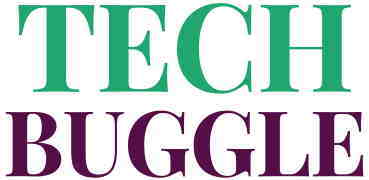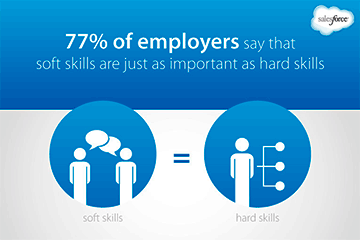Soft skills are the ability to communicate, build relationships, adapt to the environment, and demonstrate leadership skills. They are “flexible” because they are versatile and useful in any field. They are great not only while working but also while playing at TonyBet or communicating with relatives.
The ability to get along with people is useful for a teacher, an analyst, a developer, a project manager and many others. Developed soft skills are valued by managers because they help an employee solve everyday tasks.
What Is the Difference Between Hard and Soft Skills
Besides soft skills, there are also hard skills. Hard skills are highly specialized professional skills. For example, for an analyst, it’s knowledge of SQL, for a project manager, the ability to build a Gantt chart, for a marketer, analysis of the target audience.
Developing only one kind of skill won’t work. It’s easier to develop hard skills – it’s enough to learn a new program or programming language. Soft skills are more difficult, because they are more difficult to assess. Ability to communicate and learn new things can not be measured by a certificate, but they help be an effective employee. Harvard conducted a study: 85% of career growth depends on soft skills, and only 15% on narrow professional skills.
Why It’s Important to Develop Soft Skills
Soft skills are useful not only in work. Solving everyday problems is easier if you get along with people, know how to avoid conflicts and do not succumb to high stress. It does not matter if you are a programmer or a teacher: there is a pool of situations that any person faces. Success depends on how effectively you deal with these situations.
Moreover, the world is changing faster than it did 40 years ago. Therefore, the role of soft skills is increasing: when technologies and tools are rapidly becoming obsolete, the ability to adapt to new realities helps you stay afloat. In the past, hard skills were more valued: the more experience on a particular piece of equipment, the better. What was there 4-5 years ago is not always relevant today.
For example, in targeted advertising, the interface of ad offices has changed several times, and the old strategies no longer work. Imagine what became of the specialists who remained so in 2017.
What Soft Skills Are There
It’s impossible to list all the soft skills: it depends only on your imagination. Let’s highlight the main ones that will be useful in every sphere
The Ability to Communicate
This is the ability to convey your thoughts to your colleagues, to listen to the opinions of others, to adequately assess the situation. All this will help you to work in a team and solve daily tasks without additional problems.
Out-of-the-box Thinking
Sometimes it is important to look at a task from a different angle, to find a creative way to solve it. The world is changeable and the ability to work with uncertainty, to think “out of the box” will help not only managers but also ordinary specialists.
Planning
A clear plan is the key to effective work. Plans change, but the ability to intelligently assess your strengths and distribute the load will always be useful. If you spend hours sitting over one task, constantly getting distracted, work on self-organization.
Working With Information
It would seem that what is easier than googling? But the ability to find information, to analyze and draw conclusions is valued as well as the ability to take leadership. There is more and more data on the Internet, and it’s important to sift the valuable information from the garbage.
Stress Tolerance
It’s easier to work with a cool head. Imagine that every new task makes you nervous. By constantly stressing, you risk your health and the team’s ability to execute the plan.
Criticizing and Accepting Criticism
Remember that everyone makes mistakes and be more tolerant. If you are criticized, don’t take it as an insult, but as an opportunity to draw conclusions. If you find it hard to criticize others, this framework can help:
- Voice what a colleague has done.
- Show what result it led to.
- Suggest how the colleague should proceed next time.
What Soft Skills to Pump for a Beginner
The Ability to Learn
The most useful skill for beginners. If you learn quickly, you will make up for any lack of knowledge. This will come in handy later on when you gain experience. To stay a professional, constantly get new knowledge and pump up your hard skills.
Asking Questions, Even Stupid Ones
Learn from more mature colleagues and ask questions all the time. Don’t be afraid to sound stupid, because you are just beginning your journey. Mistakes help you to understand and work through your weaknesses; he who does nothing isn’t wrong.
Initiative
If you are just beginning your career, take more responsibility. Development depends directly on how much effort you put in. You can’t become a skilled professional by doing nothing.
How to Develop Soft Skills
Determine What Skills to Pump
Your set of strengths and weaknesses is individual. Ask your colleagues and relatives what you should work on, remember the problem situations when you lacked communication skills or stress resistance. These situations are opportunities for personal and professional growth.
Set a Specific Goal
If you set a vague goal, it will be harder to assess your progress. For example, “I want to communicate more easily with people” is the wrong goal, too general. It’s not clear what exactly needs to be done to achieve the result. But “I want to understand why I feel uncomfortable communicating” is a good example. It will help you to understand your problems, to identify ways to solve them.
Practice Regularly
It isn’t enough to identify the problem, regularly return to working through it. To do this, keep a diary: write down your victories and failures, and track your progress. So you’ll understand which skills are easier for you, and which are worth more work.
Give Yourself Time
Developing soft skills takes time. You can’t become sociable and unafraid of criticism in a week. So don’t despair if you can’t achieve fast results. Give yourself a couple of months, and only then make the first conclusions. Soft skills are strongly associated with subconscious habits, and it takes time to work through them. Even if after a couple of months the result does not suit you, do not give up. Only gradual work on yourself will help you to pump up your flexible skills.
Games and Meetups
It helps to develop soft skills in an informal setting. Play board games with your colleagues and friends, take part in sporting events: this will help improve teamwork and develop leadership skills. Attend professional meetups and conferences, so you will pump up your openness and communication skills.
Read Books
There are hundreds of books devoted to the topic of soft skills. Remember the advice of the authors, but don’t forget to practice. After reading the book, you won’t learn creativity or public speaking, but you will learn how to do it faster.

